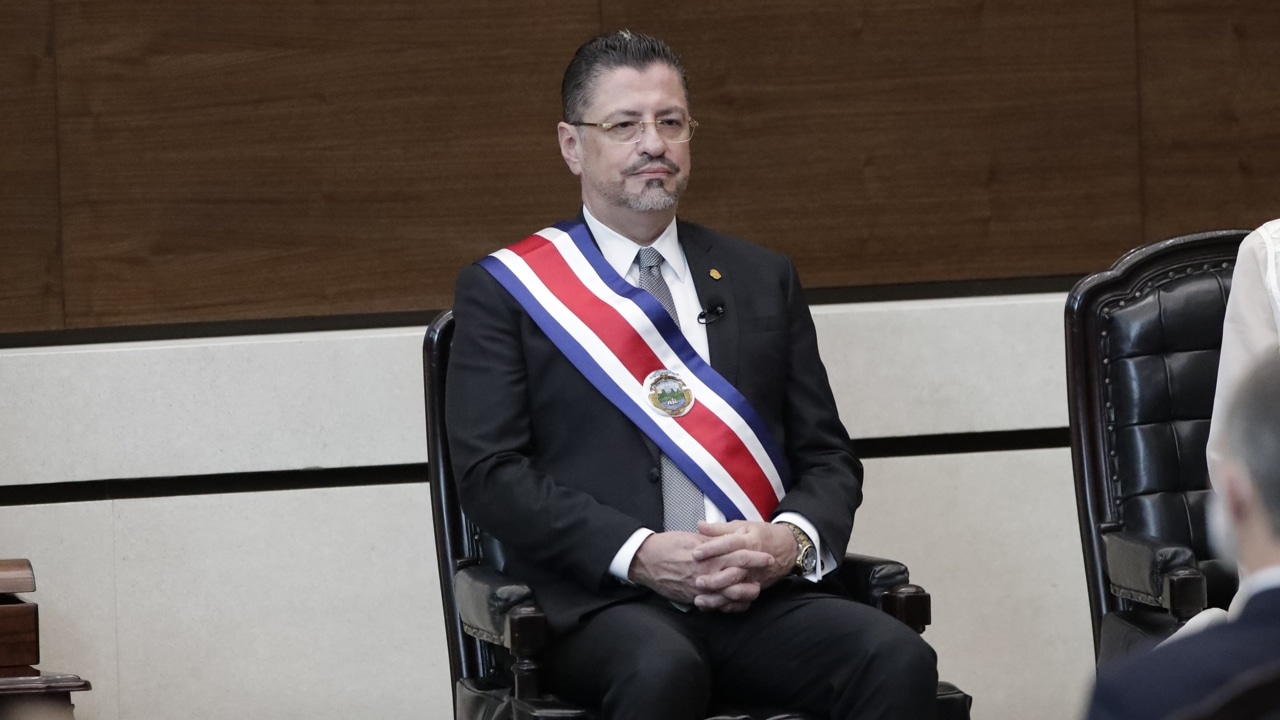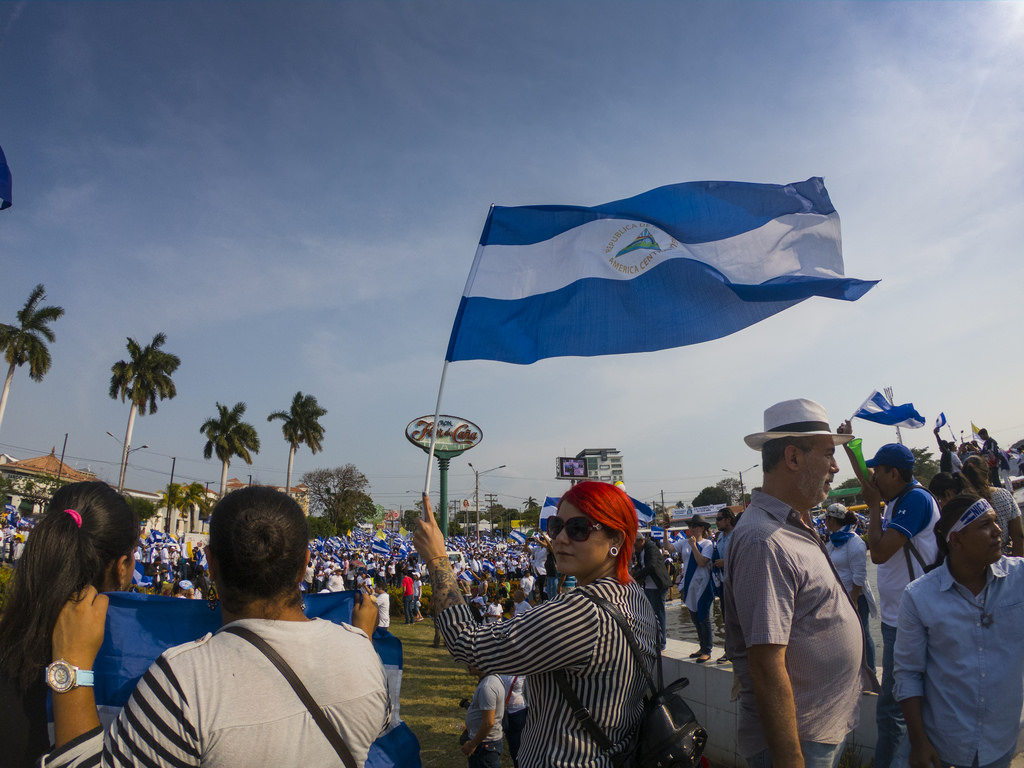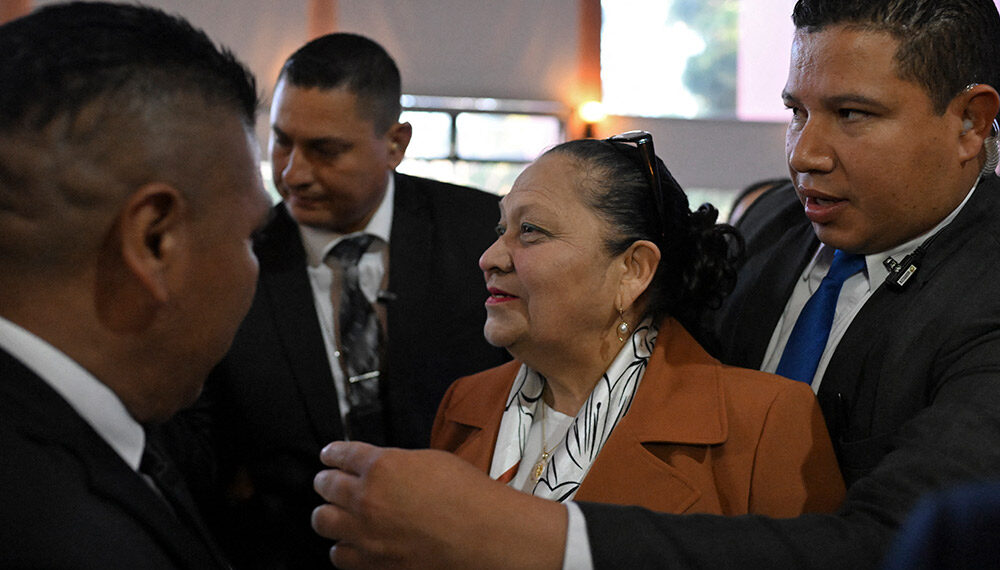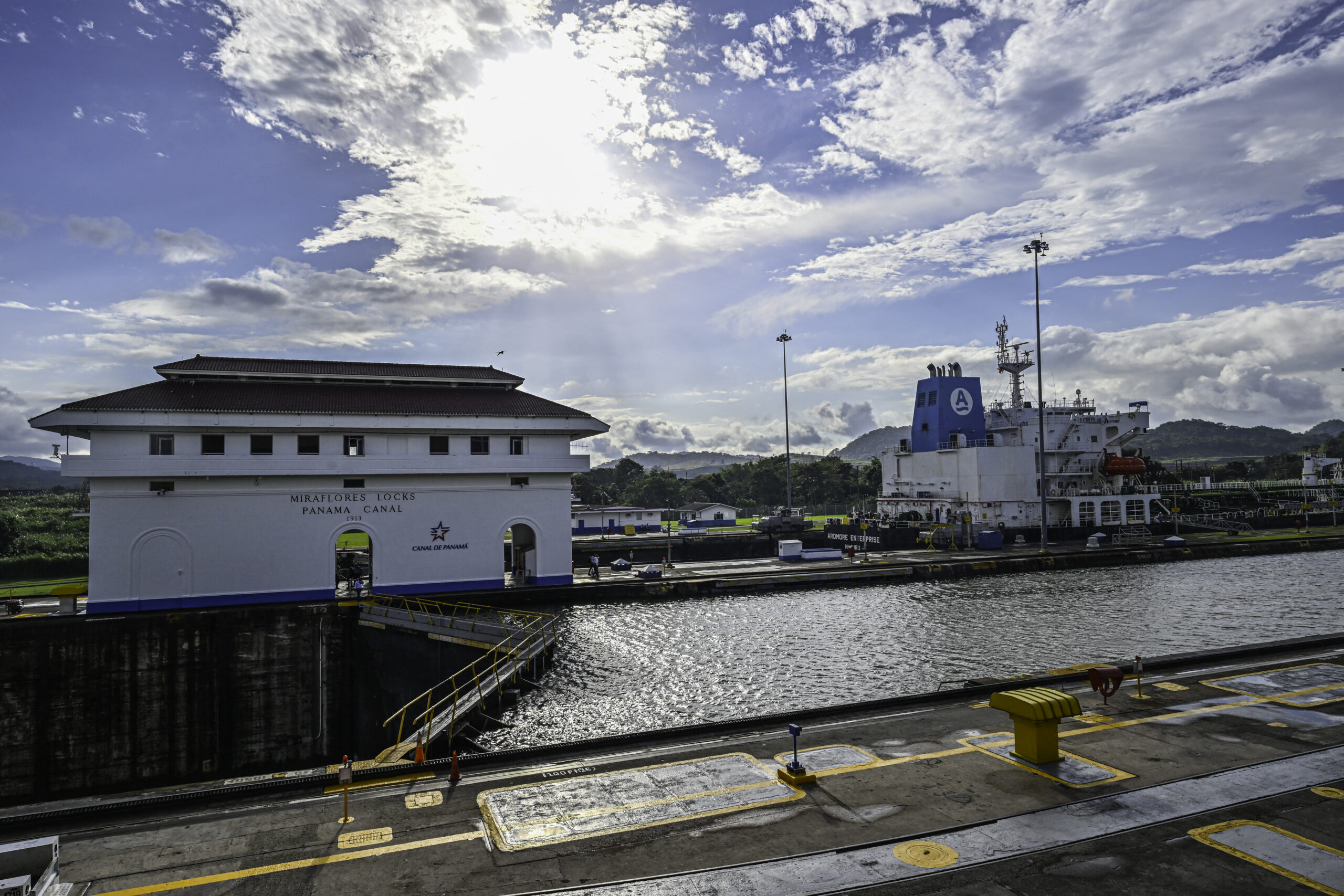Central America
Himself accused, Costa Rica’s president vows to tackle sex harassment

AFP
Costa Rica’s new president Rodrigo Chaves, elected despite a cloud of sexual harassment allegations, took the oath of office Sunday with promises to revive the economy and end the abuse of women in his country.
As feminist organizations protested nearby, the right-wing economist said the “first political commitment” of his four-year term would be to stamp out gender discrimination and harassment.
“We will not tolerate the harassment they (women) suffer every day and in all areas of society,” he told congress after being sworn in to lead one of Latin America’s most stable democracies.
“It cannot be that our women are afraid to walk alone on the street, feel afraid in their own home, at work, in a park, at a concert.”
Chaves, 60, was investigated over sexual harassment complaints brought by women while he was a senior official at the World Bank, where he worked for 30 years.
He was demoted over the claims, and later resigned.
Last month, Chaves offered “sincere apologies” to two accusers, young subordinates, having previously said the alleged harassment amounted to mere “jokes” that were “misinterpreted due to cultural differences.”
– ‘We will be vigilant’ –
Dozens of women protested Sunday near the seat of congress against gender violence and unequal pay in a country where abortion is allowed only if the woman’s life is in danger.
“We are telling the country and the president-elect that we are here. That we will be vigilant,” Sharo Rosales of the Women in Action movement told local media.
Chaves takes over an economy in decline, with rising foreign debt — about 70 percent of GDP — a poverty rate of 23 percent, unemployment of nearly 14 percent, and public sector corruption.
Vowing to “repair the country,” he said: “We will not just clean house. We will rebuild it!”
Tourism, one of the country’s main economic drivers, was hard hit by the coronavirus pandemic, and the country of 5.2 million people experienced an increase in unemployment equaled in the region only by Peru.
“If the political class fails once more, our country could fall apart,” Chaves said.
He has previously vowed to improve the terms of an agreement Costa Rica’s reached with the IMF for a loan of more than $1.7 billion.
The economist, who served six months as finance minister in the outgoing government, won a runoff election over former president Jose Maria Figueres — himself tainted by a corruption scandal.
Chaves had been a surprise qualifier for the April 3 final race, having polled fourth ahead of February’s first round.
This week, Chaves said his government would not ratify the so-called Escazu Agreement that establishes protection for environmentalists, arguing it was unnecessary and would harm the economy.
Costa Rica, a regional leader in environmental protection, had hosted the signing of the agreement in 2018.
Chaves did not address environmental issues in his first public speech.
Shortly after his inaugural address, Chaves signed his first decrees, including scrapping obligatory mask-wearing for people other than front-line health workers, and compulsory coronavirus vaccination for the public sector.
Spanish King Felipe VI attended the ceremony at Congress in San Jose, along with other heads of state or government and delegations from nearly 100 countries.
Central America
Nicaragua Held Responsible for Harassment of Opposition Prosecutor and His Family

The Inter-American Court of Human Rights on Wednesday found Nicaragua responsible for threats, harassment, and attacks suffered by opposition election monitor Jaime Antonio Chavarría and his family after he reported irregularities during the July 27, 2008 municipal elections.
Chavarría was serving as an electoral verification prosecutor for the opposition Constitutional Liberal Party at a polling station in Managua on election day. He filed a formal objection with local authorities, complaining that the polling center had closed before the scheduled time while voters were still waiting to be verified.
According to the ruling, Chavarría and several relatives present at the site were subjected to insults and threats by a representative of the ruling Sandinista National Liberation Front (FSLN). As they were leaving the area, they were intercepted and attacked by a large group of individuals allegedly incited by local Sandinista leaders.
“The events were witnessed by police officers who refrained from intervening. Mr. Chavarría Morales and his relatives, who suffered various injuries, managed to escape in their vehicle, which the aggressors attempted to set on fire,” the court detailed.
Chavarría reported the incident to the National Police, but the case was ultimately shelved in May 2016. Acts of harassment and intimidation continued over time.
The court concluded that the State bore responsibility for the threats, harassment, and subsequent attacks following July 2008, citing the participation or acquiescence of state agents in some of the incidents, as well as the failure to adopt protection and investigative measures.
In its judgment, the court determined that Nicaragua violated Chavarría’s rights to personal integrity, freedom of thought and expression, political rights, equality before the law, and the right to defend human rights.
The ruling also established state responsibility for violations affecting the personal integrity, judicial guarantees, judicial protection, and family protection rights of Chavarría and for the harm caused to the life plans of his children: Cindy Alicia Chavarría Alonso, Jeffer Joaquín Chavarría Alonso, and Jaime Antonio Chavarría Alonso.
Central America
Guatemala’s Attorney General Fails in Bid for Top Court Seat Amid Corruption Allegations

The Attorney General of Guatemala, Consuelo Porras, failed on Tuesday in her bid to join the country’s highest constitutional court, a position that would have granted her immunity from corruption allegations for which she has been sanctioned by the United States and the European Union.
Porras, whose term as attorney general ends in May, did not receive a single vote in the final round of voting to become a magistrate of the Corte de Constitucionalidad, whose rulings are final and cannot be appealed.
The Supreme Court reelected Dina Ochoa and Claudia Paniagua as its representatives to the Constitutional Court.
Ochoa is considered close to former presidents Jimmy Morales (2016–2020) and Alejandro Giammattei (2020–2024), both accused of corruption. Paniagua, like Porras, has been sanctioned by the United States.
Washington and the European Union have labeled Porras as “corrupt” and “undemocratic,” accusing her of attempting to block the inauguration of Social Democratic President Bernardo Arévalo two years ago.
In addition, the 72-year-old attorney general—who is seeking a third term—has been accused of forcing anti-corruption officials, journalists, and social leaders into exile. She denies the allegations and claims they are part of a political persecution campaign.
Porras’ chances of remaining in office, a position she has held since 2018, are considered slim, as President Arévalo is responsible for appointing the next attorney general.
Central America
Panama Canal Monitoring Trade as Middle East Conflict Disrupts Shipping

The Panama Canal Authority (ACP) said Monday it is closely monitoring global maritime trade developments following the conflict triggered by joint U.S. and Israeli strikes against Iran.
However, the ACP described it as “premature” to predict potential consequences for vessel traffic through the interoceanic waterway, which handles roughly 5% of global maritime trade.
“The Panama Canal continuously monitors the evolution of international maritime trade and the dynamics that may influence its flows,” the authority said in a statement. The canal’s main users are the United States and China, connecting primarily the U.S. East Coast with Asia, including South Korea and Japan.
The ACP emphasized that the canal “continues to operate safely, efficiently, and reliably,” providing uninterrupted service to the global maritime community.
Global Shipping Disruptions
The U.S.-Israeli military operation against Iran and Tehran’s retaliatory actions have disrupted global maritime traffic, particularly oil tanker routes.
Shipping giants Maersk and CMA CGM have suspended transits through the Strait of Hormuz as well as crossings via the Suez Canal, the key route linking the Mediterranean Sea and the Red Sea.
As a result, cargo vessels are now rerouting around Africa to reach Europe from the Middle East and Asia — a detour that adds several thousand kilometers and several days to voyages.
-

 International4 days ago
International4 days agoIran Reports 201 Dead, 747 Injured After U.S. and Israeli Strikes
-

 International3 days ago
International3 days agoBrazil’s Supreme Court Rejects Bolsonaro’s Bid for House Arrest
-

 International3 days ago
International3 days agoAnti-ICE Billboard Campaign Targets Immigration Spending in 31 U.S. Cities
-

 International4 days ago
International4 days agoPope Leo XIV Urges End to ‘Spiral of Violence’ in Middle East
-

 Sin categoría5 days ago
Sin categoría5 days agoTrump: ‘We Think It’s True’ Amid Claims Iran’s Supreme Leader Was Killed
-

 International2 days ago
International2 days agoSpain’s Prime Minister to Address Nation Amid Trump’s Trade Threats
-

 International5 days ago
International5 days agoSecurity Council to Hold Emergency Meeting on Middle East Crisis
-

 International3 days ago
International3 days agoTrump Warns of ‘Major Wave’ of Attacks as Iran Conflict Escalates
-

 International3 days ago
International3 days agoMexico Calls for Immediate Probe After National Dies in ICE Custody
-

 International18 hours ago
International18 hours agoWhite House Says Spain Agrees to Cooperate with U.S. Military After Trump Threatens Trade Embargo
-

 International18 hours ago
International18 hours agoSpain Denies Any Agreement to Cooperate with U.S. Military in Iran Operations
-

 International2 days ago
International2 days agoNew York Announces First 2,000 Seats in Universal 2-K Program
-

 Central America3 days ago
Central America3 days agoPanama Canal Monitoring Trade as Middle East Conflict Disrupts Shipping
-

 Central America18 hours ago
Central America18 hours agoNicaragua Held Responsible for Harassment of Opposition Prosecutor and His Family
-

 International3 days ago
International3 days agoBolivia Orders Three Investigations Into Deadly Military Plane Crash
-

 International2 days ago
International2 days agoWarner Bros. Developing First ‘Game of Thrones’ Movie With ‘Andor’ Writer
-

 Central America2 days ago
Central America2 days agoGuatemala’s Attorney General Fails in Bid for Top Court Seat Amid Corruption Allegations
-

 International18 hours ago
International18 hours agoClaudia Sheinbaum: Operation Against ‘El Mencho’ Was Based on Pending Arrest Warrants




























